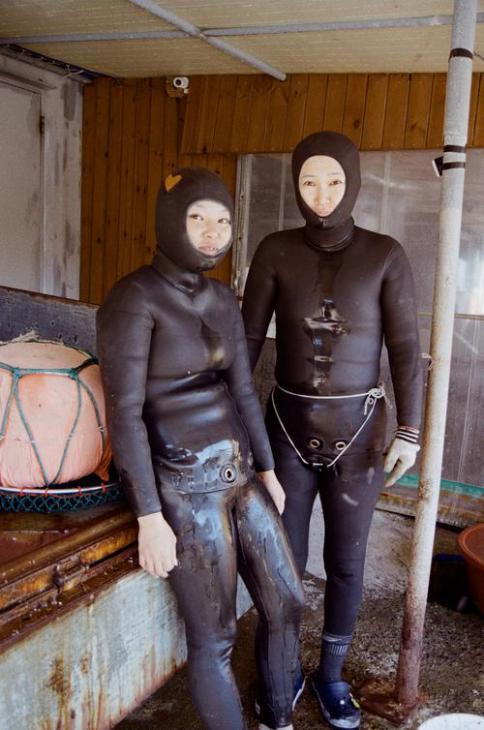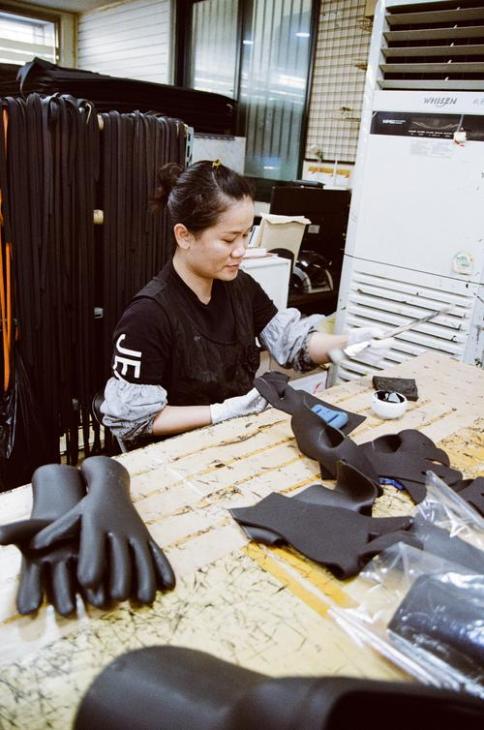Daeyang Jamsu: The bespoke wetsuit manufacturer that’s keeping Busan’s freediving traditions afloat
How bespokely tailored suits can carry an edge under water.
Daeyang Jamsu is preserving a vital part of South Korea’s cultural heritage in a quiet corner of Busan’s Yeongdo Island. At this family-run shop, Yong Bookie and his wife, Her Mi-Ok, produce hand-cut wetsuits in their studio for the haenyeo, female freedivers who have harvested the seas for generations. The divers know that investing in tailored gear gives them the edge in the water, so they choose trusted specialists over cheaper, mass-produced alternatives.
For centuries, the haenyeo have hunted for shellfish and other sea creatures along South Korea’s coast. Historically, skills were passed down from mother to daughter but demand for such abilities has fallen; today, 90 per cent of them are aged over 60. Divers used to descend into the depths in white cotton bathing suits, using hot stones to stay warm for longer. Recognising the challenges facing these women, Bookie’s grandfather sought a solution. More than 50 years ago, he welcomed a group of Japanese wetsuit craftsmen to the island, who returned with a suitcase full of neoprene, leading to the opening of the area’s first wetsuit shop. Bookie and Mi-Ok work with three employees who specialise in carving precise lines in the rubber and stitching it together. Everything is cut by hand, leaving little waste. Whether a finger on a glove or a toe reinforcement on a boot, it’s all made to measure. “We don’t make small, medium or large,” says Mi-Ok. “Instead, we make something that fits precisely.”


The key to Daeyang Jamsu’s success is in maintaining a close relationship with the haenyeo and knowing their measurements and their wishes. Instead of online orders, divers contact the shop by phone or visit annually to buy a new suit or have adjustments made. “In the old days, divers used their suits for three years before ordering a new one,” says Bookie. “But these days they change suits every year.”
A 5mm- or 6mm-thick freediving suit typically costs 400,000 won (€270) and the team here produces more than 500 of them per year. “When I was young, many divers couldn’t pay us in money, so they paid us in seafood,” says Bookie. Fortunately, the situation has improved despite dwindling numbers of haenyeo. As one of the few remaining specialists – and with a small number of young women still keen to keep the tradition alive – business for Daeyang Jamsu looks watertight.
94 Hansarang-gil, Yeongdo-gu, Busan


